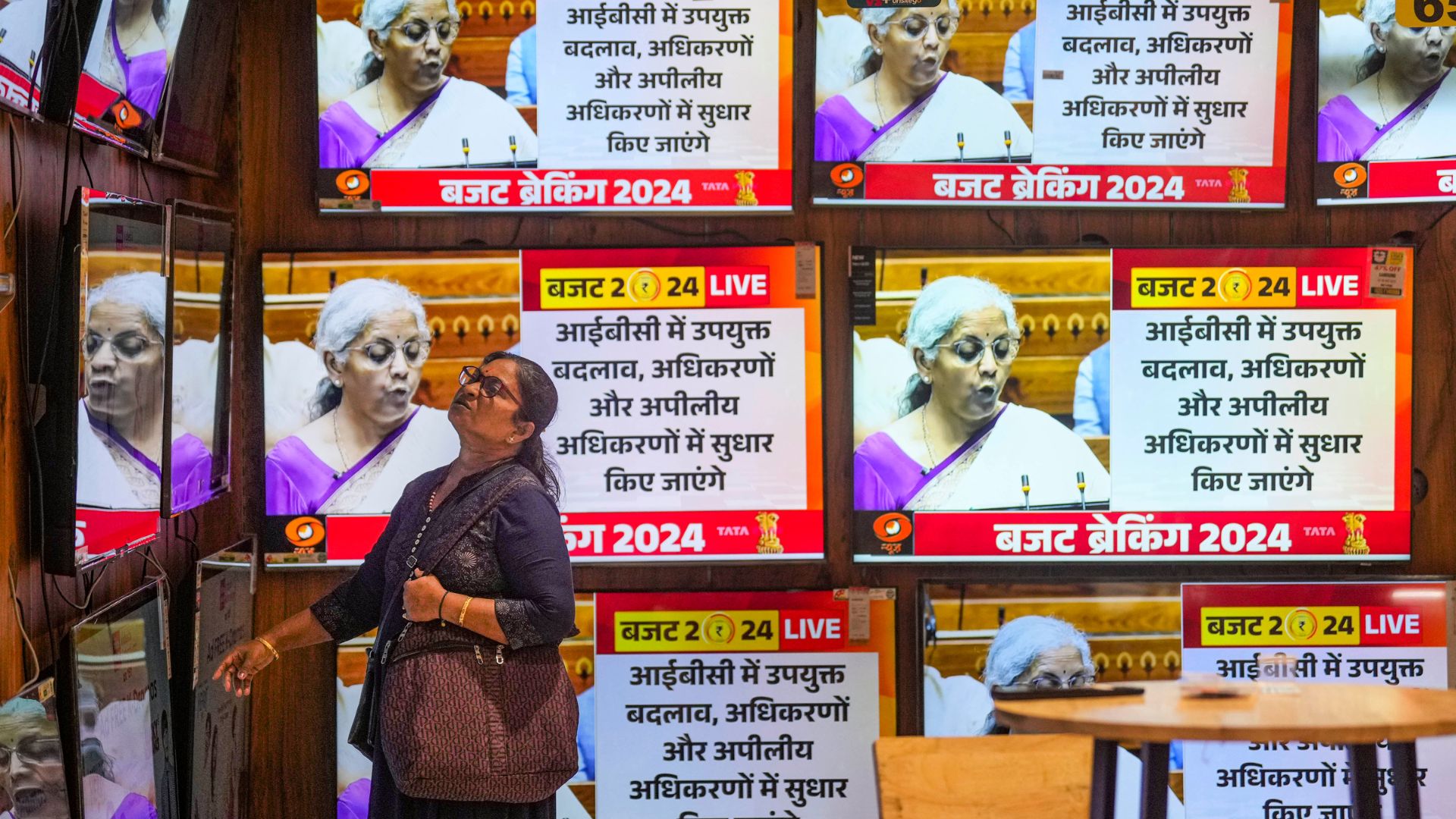Chandrajit Banerjee | An inclusive Budget with its focus on growth, jobs
Union Budget 2024-25 outlines a forward-looking vision for India with emphasis on growth, inclusiveness, job creation, and environmental sustainability

The Union Budget 2024-25 exemplifies the unwavering dedication of the finance minister to provide a medium-term vision and an all-encompassing blueprint for a prosperous, environmentally sustainable and technologically advanced India. With an objective of having the nation proceed on the “Amrit Kaal” journey with gusto and join the league of developed nations by 2047, it solidly emphasises growth, inclusiveness and job creation.
As was indicated in the Interim Budget, the full Budget has delineated the long-term vision for Viksit Bharat. By unveiling nine key priorities, it has drawn a roadmap for fulfilling the long-term development goals of the nation without losing sight of short-term priorities.
The Union Budget makes sure that every Indian is a stakeholder in the Viksit Bharat dream. Accordingly, the provisions touch the lives of all segments. Multidimensional issues facing the economy have been addressed. The farmers, middle class, youth, women, MSMEs and vulnerable sections have all been included in the Budget announcements.
In this well-articulated Budget, there is a bold agricultural and rural thrust. There is a quantum jump in expenditure on agriculture which is critical to improve farm productivity. Announcements such as allocation for rural infrastructure, support for farmer-producer organisation and cooperatives, mission on oilseeds and pulses, developing clusters close to consumption centres, focus on natural farming, encouraging technology and agri-research, encouraging use of digital public infrastructure and so on would go a long way to improve productivity in agriculture and shape a new exemplar of socio-economic progress in the heartlands of the nation.
Yet agriculture alone cannot generate demand and jobs. Inclusive growth would need to come from industry in general and labour-intensive manufacturing in particular. Hence, the impetus to labour-intensive manufacturing and MSMEs is the centre-piece of the finance minister’s announcements in the Budget. In this direction, steps such as credit guarantee for MSMEs, raising the limit for MUDRA loans to Rs 20 lakhs from Rs 10 lakhs for those who have repaid their loan, credit support for MSMEs under stress, setting up of e-commerce export hubs in public-private-partnership (PPP) mode to support domestic artisans and enhanced scope for mandatory on-boarding in TReDS would help address the longstanding and festering problems concerning MSMEs.
Further, the commitment of the government to facilitate the development of investment-ready industrial parks on plug-and-play basis in association with the states and the private sector and sanctioning of 12 industrial parks under the National Industrial Corridor Development Programme are noteworthy and would provide ready-to-use infrastructure for industry to operate. Integrating the tech platform for improving outcomes under the Insolvency and Bankruptcy Code and the Jan Vishwas Bill 2.0 would facilitate ease of doing business.
The focus on skills in the Budget through landmark steps such as internship opportunities in 500 top companies, internship allowance of Rs 5,000 per month and interest subvention of three per cent for education loans, among others, would help reduce the skilling gaps within industry and pave the way for India to emerge as a manufacturing hub.
Apart from skilling, the finance minister has also announced three new employment-linked schemes, including for first-timers and employers and linked to the EPFO. It has encouraged women to join the workforce by taking facilitative steps such as setting up of women’s hostels, women-specific skilling programmes, creches in offices and support to self-help groups. The Budget also provides an allocation of Rs 3 lakhs for the benefit of women.
Meanwhile, in consonance with global initiatives, the prioritising of environmental sustainability and the green economy in the Budget is unmistakable. Steps towards energy transition, including the pump storage policy, roadmap for hard-to-abate industries, such as steel, power, chemical, cement and refining, and rooftop solarisation would promote sustainability and green growth.
Displaying a pragmatic approach, the Budget has made provisions to nurture and rejuvenate urban consumption demand which is showing nascent signs of improvement. The lowering of income tax rates for salaried employees, particularly for those in the lower income group, raising standard deduction for the salaried class under the new tax scheme and deduction on family pension would provide relief for the middle class and boost their purchasing power while drawing more people towards the new I-T regime.
The cornerstone of the Budget is macroeconomic stability and continuity in policy which would serve as a bedrock for driving sustained economic growth. In this context, the finance minister should be commended for reining in fiscal deficit and bringing it down to 4.9 per cent for the current year which is much below the 5.1 per cent announced in the Interim Budget for 2024-25.
The salutary focus on capital expenditure, which has been retained at the same level as in the Interim Budget, shows that infrastructure creation remains among the key development objectives of the government. The provision of Rs. 1.5 lakh crores for long-term interest free loans to the states would provide them with much-needed resources to undertake capex.
The Budget also aims to build a consensus with the states and stakeholders for undertaking next generation reforms, especially in factors of production such as land and labour, which are in the domain of states and incentivising effective implementation of BRAP (Business Reforms Action Plan).
Some of the other significant announcements include a priority to urban development and modernisation of cities, tax stability, a boost to start-ups by abolishing angel tax and promoting rural and urban housing through PM Awas Yojana.
Overall, a comprehensive, pragmatic and forward-looking Budget with a focus on growth and inclusion.
